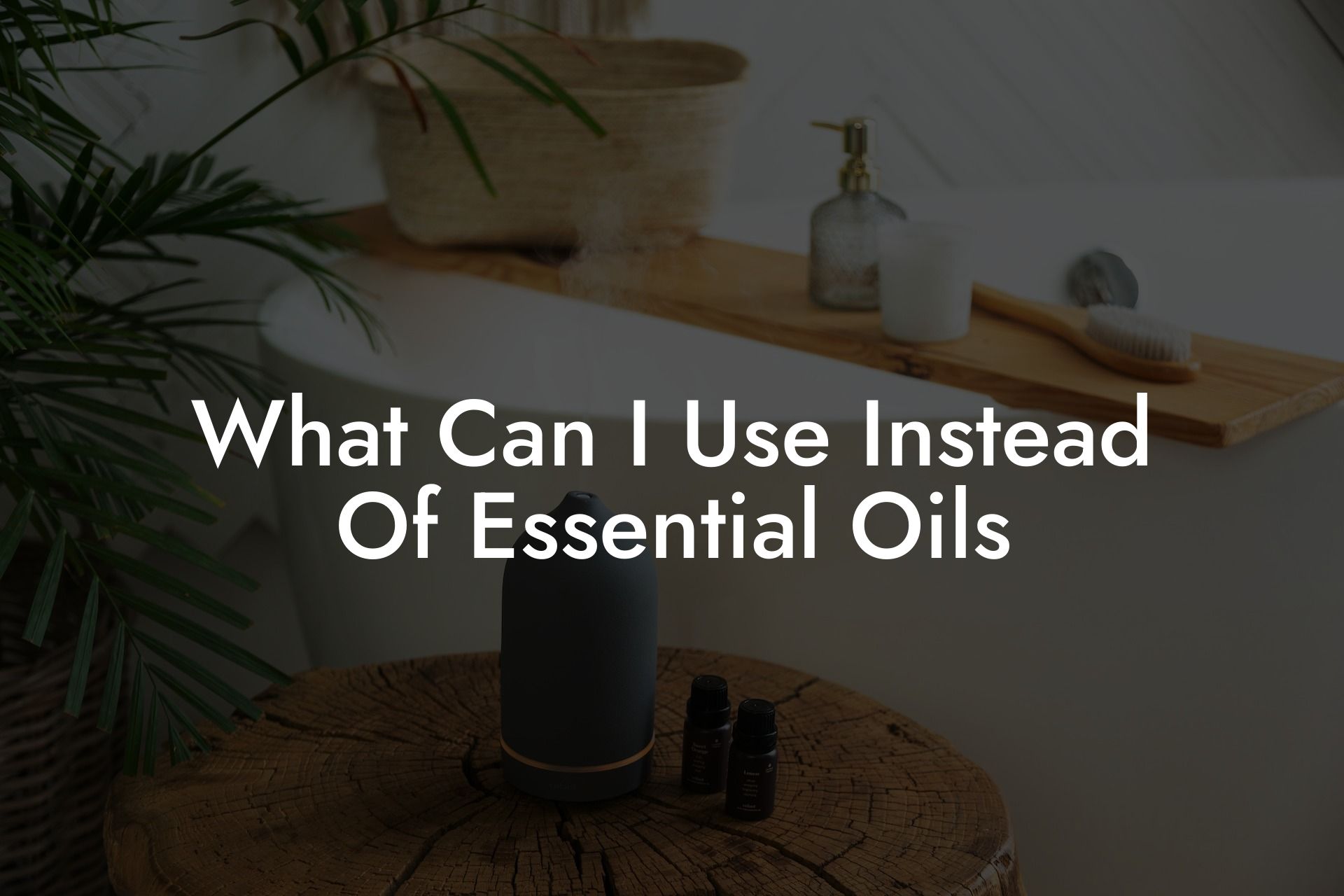Are you looking for alternatives to essential oils but still want to enjoy the benefits of natural aromatherapy? Don’t worry! In this article, we will explore some incredible substitutes for essential oils that will still provide you with the therapeutic and aromatic experiences you love.
Table of Contents
1. Hydrosols
What are Hydrosols?
Hydrosols, also known as floral waters or plant distillates, are the water-soluble byproducts produced during the steam distillation process of essential oils. Hydrosols have similar properties to their essential oil counterparts, but they are milder and can be used directly on skin without dilution.
How to Use Hydrosols?
- Skin toners and facial sprays: Hydrosols can be used as a facial toner or refreshing facial spray for their soothing and hydrating properties.
- Bathing and soaking: Add a generous amount of hydrosols to your bath for a relaxing and invigorating soak.
- Room fresheners: Mix hydrosols with distilled water in a spray bottle and use to freshen up your living space.
2. Infused Oils
What are Infused Oils?
Infused oils are oils that have been steeped with aromatic plant material to extract their therapeutic properties. They offer a gentler way to enjoy the benefits of aromatherapy and can be used as a carrier oil or base for essential oil blends.
How to Use Infused Oils?
- Massage: Infused oils can be used as a nourishing base for massage therapy.
- Bath oils: Add a few drops of infused oils to your bathwater for a luxurious and fragrant soak.
- Skin care: Use infused oils for moisturizing and nourishing the skin.
3. Herbal Extracts
What are Herbal Extracts?
Herbal extracts are concentrated liquid solutions made from herbs. They are available in various forms, such as tinctures, glycerites, and liquid extracts. Herbal extracts offer the therapeutic properties of plants in a more direct and potent form compared to dried herbs.
How to Use Herbal Extracts?
- Aromatherapy: Herbal extracts can be diffused in an aroma diffuser or applied topically when diluted with a carrier oil.
- Internal use: Some herbal extracts can be taken internally as a dietary supplement. Always consult a qualified healthcare professional before consuming any herbal extract.
- Bath enhancement: Add a few drops of herbal extracts to your bath water for a rejuvenating and aromatic bathing experience.
4. Plant-based Powders
What are Plant-based Powders?
Plant-based powders are ground or powdered forms of dried plants, flowers, or herbs. These powders can be used as a natural and eco-friendly alternative to essential oils for creating a soothing and aromatic ambiance.
How to Use Plant-based Powders?
- Incorporate into beauty products: Add plant-based powders to your homemade lotions, soaps, or bath salts for a fragrant and therapeutic twist.
- Air fresheners: Mix plant-based powders with baking soda and place in small containers around your home or office to naturally absorb odors and freshen the air.
- Incense: Burn plant-based powders on a charcoal disc or incense burner to create a calming and aromatic atmosphere.
What Can I Use Instead Of Essential Oils Example:
Imagine a spa night at home: Fill your bathtub with warm water and add a generous amount of rose hydrosol, a few drops of lavender-infused oil, and a scoop of powdered chamomile. Light some candles and allow yourself to enjoy a soothing soak, surrounded by the calming aromas of these natural plant-based products. Your skin will feel nourished, and your mind relaxed, without the need for essential oils.
Now that you know several wonderful alternatives to essential oils, why not give them a try? Explore the world of hydrosols, infused oils, herbal extracts, and plant-based powders to unlock the therapeutic benefits of aromatherapy in new and exciting ways. Remember to share this article with your friends and fellow aromatherapy enthusiasts, and don’t forget to check out the Oshu Oils range of essential oils along with our informative guides to make your aromatherapy journey more fulfilling.





















